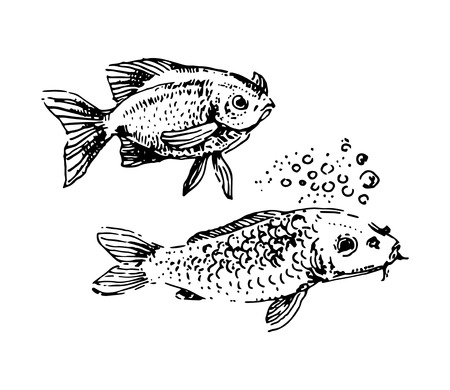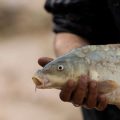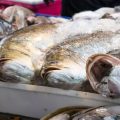Introduction to Fishing Closed Seasons in the UK
A warm welcome to all our fellow anglers and curious readers! If you’ve ever packed your fishing gear, only to be told it’s “closed season,” you’re not alone. Understanding fishing closed seasons is essential for anyone keen on casting a line across Britain’s beautiful waters. Closed seasons, sometimes called “close seasons,” are specific times of the year when fishing certain species or in particular places is restricted or completely off-limits. But why do we have them? At their heart, these rules are designed to protect fish populations during crucial breeding periods, give nature a chance to recover, and ensure our rivers, lakes, and canals remain teeming with life for generations to come. For British anglers—whether you’re a lifelong enthusiast or just beginning your journey—knowing about closed seasons isn’t just about following the law; it’s about caring for our cherished waterside traditions and helping preserve the natural balance of our environment. Throughout this article, we’ll explore what closed seasons mean for you, how they’re applied across different regions of the UK, and the positive impact they have both on fish stocks and the wider countryside.
Key Dates and Locations for Closed Seasons
If you love spending peaceful days by the water with a rod in hand, it’s essential to understand the UK’s closed season rules. These dates protect fish stocks during their spawning periods, giving our rivers and lakes time to recover and thrive. However, the rules aren’t one-size-fits-all—there are notable differences depending on where you live and what type of fishing you enjoy.
Main Closed Season Dates Across the UK
The following table gives a handy overview of key closed season dates for both coarse and game fishing in England, Wales, and Scotland:
Region |
Type of Fishing |
Closed Season Dates |
Notes |
|---|---|---|---|
| England (Rivers) | Coarse | 15 March – 15 June (inclusive) | Applies to all rivers, streams, and drains; stillwaters vary |
| England (Stillwaters & Canals) | Coarse | No statutory closed season* | *Individual fisheries may set their own dates |
| Wales (Rivers) | Coarse | 15 March – 15 June (inclusive) | Same as England; check local byelaws |
| Wales (Stillwaters & Canals) | Coarse | No statutory closed season* | *Check with fishery owners for specific restrictions |
| Scotland (Rivers & Stillwaters) | Coarse | No statutory closed season* | *Some voluntary or local restrictions apply; check with local authorities or clubs |
| England & Wales (Game Fishing – Salmon/Trout) | Game | Varies by river—generally between October and March/April | Check individual river regulations for precise dates |
| Scotland (Game Fishing – Salmon/Trout) | Game | Varies widely—often January/February to October/November depending on region and species | Always refer to local river boards or Fishery Trusts for exact details |
A Family Tip:
If you’re planning a holiday fishing trip, double-check your chosen venue’s rules ahead of time—especially if travelling between regions. Local angling clubs are usually more than happy to help with up-to-date information, so don’t hesitate to ask. It ensures everyone enjoys their day out without any worries!

3. Species-Specific Guidelines
Understanding which fish species are subject to closed seasons is essential for every angler in the UK, as rules can vary not only by region but also by species. The main types of fish affected by these restrictions are coarse fish, trout, and salmon, each with its own set of guidelines designed to protect their populations during crucial breeding times. Here’s a handy overview to help you plan your next fishing trip responsibly:
| Fish Species | Closed Season | Typical Waters Affected |
|---|---|---|
| Coarse Fish (e.g., bream, carp, pike) | 15 March – 15 June (inclusive) | Rivers, streams, drains, some canals |
| Trout | Varies (commonly October – March) | Lakes, rivers, and reservoirs (check local bylaws) |
| Salmon | Varies by river; often November – January | Mainly rivers in Scotland and northern England |
If you’re a family keen on spending time together outdoors, it’s worth noting that closed seasons aren’t just about rules—they’re about protecting the future of our beloved sport for generations to come. For example, while coarse fish have a set closed season on most rivers in England and Wales from 15 March to 15 June, stillwaters and most canals remain open year-round unless stated otherwise by local authorities. Trout and salmon regulations can be even more variable depending on the specific waterway and region—so always double-check with your local angling club or the Environment Agency before heading out.
Local anglers often share tips at community meetings or through online groups about the best places to fish legally during restricted periods. It’s always a good idea to connect with these friendly locals; not only will you stay within the law, but you’ll likely pick up some brilliant advice on how to enjoy the UK’s natural beauty responsibly.
4. Legal Considerations and Compliance
Understanding and respecting the legal side of fishing closed seasons in the UK is essential for every angler, whether you’re a weekend hobbyist or a seasoned enthusiast. Not only does following these rules help protect fish stocks and the environment, but it also ensures you stay on the right side of the law—nobody wants an unexpected fine ruining their day by the water!
Your Legal Obligations as an Angler
All anglers in the UK must be aware of both national regulations and local byelaws that set out when and where fishing is allowed. These rules often vary depending on the type of water (rivers, lakes, canals) and even the species you’re targeting. The most common requirement is to hold a valid rod fishing licence from the Environment Agency (in England and Wales), Scottish Environment Protection Agency (in Scotland), or Northern Ireland’s Department of Agriculture, Environment and Rural Affairs.
| Region | Authority | Licence Required? |
|---|---|---|
| England & Wales | Environment Agency | Yes – Rod Fishing Licence |
| Scotland | SEPA & District Salmon Fishery Boards | Varies – Check Local Byelaws |
| Northern Ireland | DAERA | Yes – Angling Permit |
Best Practices to Stay Compliant
- Always check closed season dates before heading out, as they may differ across regions and waters.
- Respect signage at fisheries or riverbanks—it often highlights specific restrictions or seasonal closures.
- If you’re unsure about local rules, ask fellow anglers or contact your local tackle shop—they’re usually more than happy to help!
Keeping Up-to-Date: Where to Find Information
The best way to make sure you’re fishing within the law is to keep up with the latest guidance from official sources. Here are some handy links:
- Environment Agency (England & Wales)
- Scottish Environment Protection Agency (SEPA)
- NI Direct – Angling Licences (Northern Ireland)
A Final Word
If in doubt, don’t risk it—fishing during a closed season can result in hefty fines or even prosecution. Staying informed not only keeps your fishing trips stress-free but also helps preserve our treasured waterways for future generations to enjoy.
5. Responsible and Respectful Angling During Closed Seasons
Closed seasons are a crucial time for the UKs fish populations to spawn and recover, so its important that we all play our part in protecting these precious resources. Whether you’re heading out with your family or fishing solo, there are plenty of ways to stay involved and support conservation efforts even when traditional angling is off-limits.
Tips for Families and Individuals
| Tip | Description |
|---|---|
| Explore Alternative Activities | Try pond dipping, wildlife spotting, or bird watching along your favourite rivers and lakes. These activities keep everyone connected to nature while respecting the closed season rules. |
| Get Involved in Conservation Projects | Join local river clean-ups or volunteer with angling clubs to help restore habitats and improve water quality. It’s a great way for families to bond and give back. |
| Attend Angling Workshops & Events | Many local angling clubs offer workshops, talks, or junior angler sessions during the closed season. This is a brilliant opportunity to learn new skills and meet fellow enthusiasts. |
| Maintain Your Tackle | Use this downtime to check, clean, and repair your rods, reels, and gear. Involve the kids—it’s fun and teaches responsibility! |
| Share Stories & Knowledge | Swap tales, tips, or recipes for your favourite fish dishes with friends or online communities. Staying engaged keeps the passion alive until the season reopens. |
Staying Connected with the Angling Community
The closed season doesn’t mean you have to put your love of fishing on hold entirely. Many families find it’s a special chance to slow down together—perhaps by taking riverside walks, joining conservation efforts, or planning their next big fishing adventure. Stay active in local Facebook groups or club forums; you’ll find plenty of friendly advice and news about upcoming events. By supporting each other and our waterways during these months, we all help ensure future generations can enjoy angling’s simple pleasures across the UK.
6. Useful Resources and Further Reading
Whether you’re a seasoned angler or just starting out with the family, having access to reliable information and support is essential for enjoying fishing within the UK’s closed season rules. Here’s a handy guide to trusted resources, organisations, and local clubs where you can find advice, up-to-date regulations, and even ideas for family-friendly fishing days out.
National Organisations
| Name | Description | Website |
|---|---|---|
| Environment Agency | The official authority for fishing licences and closed season updates in England. | Visit site |
| Angling Trust | Offers guidance on angling laws, conservation, events, and youth programmes. | Visit site |
| Scottish Federation for Coarse Angling | Covers Scottish-specific closed seasons and local angling initiatives. | Visit site |
Local Clubs and Societies
Joining a club is a wonderful way to meet fellow anglers, share tips, and discover hidden gems in your area. Many clubs also arrange child-friendly events—perfect for a family day out!
- British Pike Guides Association: Great for learning specialist techniques and joining group sessions.
- River Thames Anglers’ Conservancy: Focuses on river care and responsible fishing on the Thames.
Online Communities & Forums
If you’re after real-time updates or want to ask questions from the comfort of home, online forums like The Fishing Forum UK and Facebook groups such as UK Family Fishing Days Out are brilliant places to connect with others who share your passion.
Further Reading & Magazines
- “Angler’s Mail” – Weekly tips and stories from across the UK.
- “Improve Your Coarse Fishing” – Monthly magazine packed with seasonal advice.
No matter where you live in the UK, these resources will help you stay informed about closed seasons while making fishing an enjoyable experience for the whole family. Happy fishing—and don’t forget to check those local rules before you cast off!


